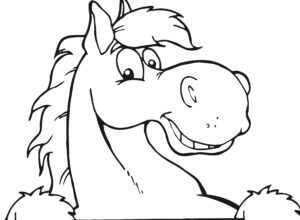Equine Science
go.ncsu.edu/readext?816610
en Español / em Português
El inglés es el idioma de control de esta página. En la medida en que haya algún conflicto entre la traducción al inglés y la traducción, el inglés prevalece.
Al hacer clic en el enlace de traducción se activa un servicio de traducción gratuito para convertir la página al español. Al igual que con cualquier traducción por Internet, la conversión no es sensible al contexto y puede que no traduzca el texto en su significado original. NC State Extension no garantiza la exactitud del texto traducido. Por favor, tenga en cuenta que algunas aplicaciones y/o servicios pueden no funcionar como se espera cuando se traducen.
Português
Inglês é o idioma de controle desta página. Na medida que haja algum conflito entre o texto original em Inglês e a tradução, o Inglês prevalece.
Ao clicar no link de tradução, um serviço gratuito de tradução será ativado para converter a página para o Português. Como em qualquer tradução pela internet, a conversão não é sensivel ao contexto e pode não ocorrer a tradução para o significado orginal. O serviço de Extensão da Carolina do Norte (NC State Extension) não garante a exatidão do texto traduzido. Por favor, observe que algumas funções ou serviços podem não funcionar como esperado após a tradução.
English
English is the controlling language of this page. To the extent there is any conflict between the English text and the translation, English controls.
Clicking on the translation link activates a free translation service to convert the page to Spanish. As with any Internet translation, the conversion is not context-sensitive and may not translate the text to its original meaning. NC State Extension does not guarantee the accuracy of the translated text. Please note that some applications and/or services may not function as expected when translated.
Collapse ▲
Equine Science Series for kids ages 8 to18 who want to learn more about horses or explore a career in the horse industry. These interactive educational sessions will provide participants the opportunity to gain valuable knowledge and skills on every aspect of the horse industry. We will explore the horse from the inside out and learn about the industry itself with particular emphasis on career opportunities. We will also highlight all of the opportunities available in the NC 4-H Equine Science Program. This program will consist of educational classes, hands-on activities, guest speakers such as vets and farriers, and field trips to equine facilities in the area.
The first four sessions in this series are:
- September 17, 2021: Basic Care, Feed, and Nutrition
- October 22, 2021: Exploring the Horses Gut
- November 19, 2021: Leg, Ligaments, and Suspensory
- December 22, 2021: No Hoof No Horse
All classes are from 2–4:30 p.m. and will be held at the CCRC (Currituck County Rural Center) classroom (white barn across from the playground). located at 184 Milburn Sawyer Rd. in Powells Point, NC.
To register for these classes go to: https://4hequinescience.eventbrite.com
If you have questions about the registration process, or if you need accommodations for persons with disabilities please contact Tom Harrell at 252-232-2262 or email tpharrel@ncsu.edu no later than five business days before the event.




